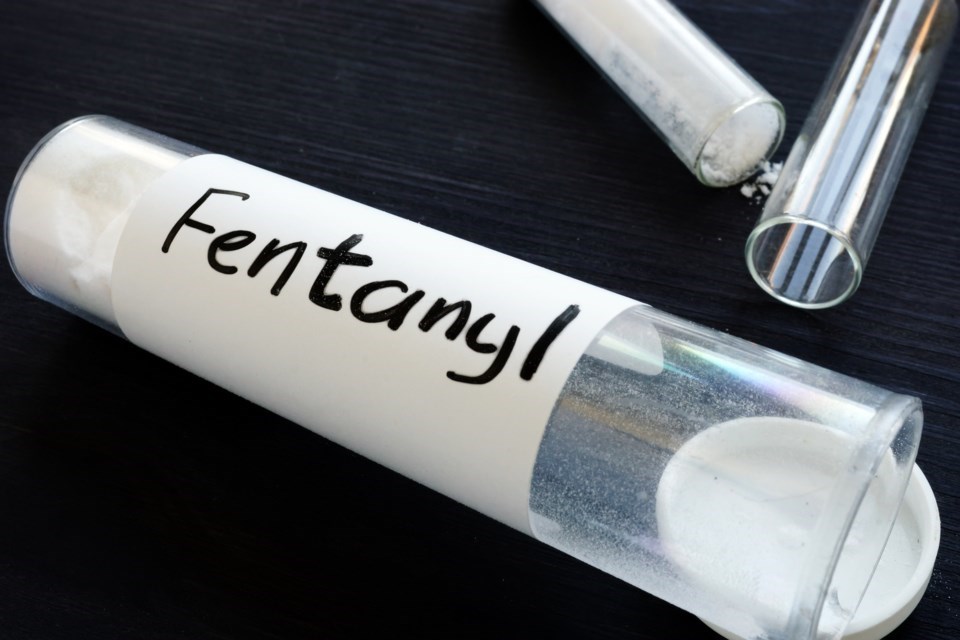The number of people who died of unregulated drug deaths in New Westminster in 2023 reached its second-highest total in the past decade.
The 38 unregulated drug deaths in New Westminster in 2023 is second only to the record of 47 deaths in 2021. It’s also an increase from 2022’s total of 32 – and is significantly higher than the five deaths reported in 2013.
On a percentage basis, New Westminster is listed as one of the townships with the highest rates of unregulated drug deaths in 2023.
According to the BC Coroners Service, Vancouver had the most unregulated drug deaths in 2023, with 26 per cent of all deaths.
Rounding out the communities with the most unregulated drug deaths were: Surrey (nine per cent); Greater Victoria (seven per cent); Nanaimo, Kelowna, Abbotsford and Prince George (each with four per cent of the province’s deaths); Kamloops (three per cent); Chilliwack, Vernon, Burnaby, Langley and New West (each with two per cent); and Richmond, Coquitlam, Penticton and North Vancouver (each with one percent). All other townships accounted for 26 per cent.
Preliminary reporting released by the BC Coroners Service on Jan. 24 confirmed that toxic, unregulated drugs claimed the lives of at least 2,511 people in British Columbia in 2023 – the largest number of drug-related deaths ever reported to the agency.
"Tragically, toxic, illicit drugs are continuing to cause unprecedented numbers of deaths across our province," B.C.s chief coroner Lisa Lapointe said in a news release. "This crisis, driven primarily by unregulated fentanyl, has cost our province dearly in the loss of much-loved and valued members of our communities. We cannot bring our deceased loved ones back, but we can and must do much more to protect the lives of tens of thousands of our family members, friends and colleagues still at risk."
The BC Coroners Service states the total number of lives lost in 2023 equates to an average of 6.9 deaths per day; it is five per cent more than the previous high of 2,383 deaths that were recorded in 2022.
Unregulated drug toxicity is the leading cause of death in British Columbia for persons aged 10 to 59, accounting for more deaths than homicides, suicides, accidents and natural disease combined, said the report from the coroners service.
The Province of British Columbia declared a public health emergency in April 2016. Since then, at least 13,794 British Columbians have lost their lives to unregulated drugs.
"As we approach the eighth anniversary of the declaration of the public health emergency that has cost so many lives across B.C., our province needs a co-ordinated, evidence-based response that is commensurate with the scale of this health crisis," Lapointe said. "Deaths due to drug toxicity are preventable, and I urge our political leaders at all levels to collaborate on a thoughtful, comprehensive plan that puts people first."
The statistics in the Jan. 24 report on the number of deaths are considered preliminary, as data is subject to change as additional toxicology results are received. Some other findings from the report:
- The number of unregulated drug deaths in B.C. in November (220) and December (219) equates to about 7.2 deaths per day.
- In 2023, 80 per cent of unregulated drug deaths occurred inside (47 per cent in private residences and 33 per cent in other inside residences, including social and supportive housing, SROs, shelters, and hotels and other indoor locations) and 19 per cent occurred outside in vehicles, sidewalks, streets, parks, etc.
- Smoking was the most common mode of consumption in 2023 with 65 per cent showing evidence of smoking, followed by injection (14 per cent), nasal insufflation (14 per cent) and oral (four per cent).
In New West, the health contact centre offers services such as witnessed consumption, drug testing, harm reduction supplies, and naloxone kits and training. Located at 40 Begbie St. (enter via Alexander Street) it is open from 3:30 to 10 p.m. seven days a week.



